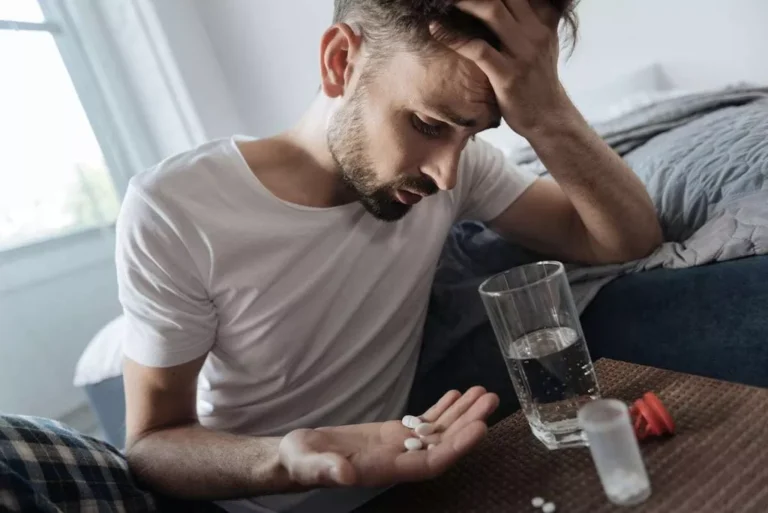
The year 2020 was one of the most challenging in modern history, one that took a toll on our mental and physical health. Don’t forget, you can ask questions anytime, and we’ll do our best to find the right expert to point you do alcoholics crave sugar in the right direction. As mentioned above, cravings result from either a withdrawal or the presence of a trigger. For those of us with sustained recoveries, the cues and triggers are typically the cause of our cravings.
Top 10 Drug & Alcohol Rehab Centers in Massachusetts
- Carbohydrates, amino acids, dietary fat, and fatty acids are particularly beneficial in supporting brain health during recovery [1].
- To understand why alcoholics often experience intense cravings for sugar, it is important to explore the shared neurobiological pathways between alcohol dependence and sweet preferences.
Alcohol disrupts your body’s ability to manage blood sugar, which can cause reduced blood sugar levels, leading to sugar cravings. Alcoholics crave sugar because their bodies are used to the dopamine spike caused by drinking. I see many people quit the booze, but then pick up another addition- sugar, cigarettes, caffeine, social media, sex, shopping, gambling, codependent relationships. We may find relief in these other behaviors because they are triggering the same reward center of the brain.
Impact of Alcohol on the Brain
This is likely because sugar slows the body’s rate of gastric emptying.5 Because of this, less alcohol enters the bloodstream. Sugar cravings are the most intense about a week after the last drink. From there, they taper off eventually, usually within a week or two. However, this depends on how much sugar one consumes during this time. Alcoholic beverages can cause bloating for various reasons, including the type of drink, carbonation, its ingredients, and anything added to it.
Guide to Benzodiazepine Treatment
The impact of sugar on the brain, particularly in individuals with alcohol use disorder, highlights the complex nature of addiction and the potential for sugar cravings to replace alcohol cravings. By understanding the underlying mechanisms at play, individuals in recovery can make informed decisions and develop strategies to manage their sugar cravings effectively. Understanding the physiological factors behind alcoholics’ sugar cravings is crucial in developing strategies to address and manage these cravings. Another factor contributing to sugar cravings in alcoholics is the addictive nature of both alcohol and sugar. Alcohol stimulates the release of dopamine, a neurotransmitter involved in the brain’s reward system.
What Does the Term “Gateway Drug” Mean?
In addition to seeking professional help and joining support groups, it is essential to build a strong support system of friends and family who can offer encouragement and understanding. Having a network of individuals who are supportive and compassionate can make a significant difference in overcoming sugar cravings and maintaining sobriety. Individuals with AUD may also need to address nutrient deficiencies that have resulted from alcohol use.

Discover inpatient rehab guidelines for alcohol addiction and pave your path to sober living today. Discover the devastating three krokodil effects, from skin damage to mental health consequences. Explore the types of mental illnesses that lead to addiction, and effective integrated treatment approaches. Uncover early signs of alcoholism in a loved one, understand its impact and learn how to seek help.
- During this time, the brain transitions from incentive salience to habit formation.
- These psychological factors, combined with the biological and genetic factors previously discussed, contribute to the complex relationship between alcohol use disorders and sugar cravings.
- Having a structured routine, (i.e. getting enough sleep, which is ideally, 7 or more hours) and eating three balanced meals a day, can also help combat cravings, says Dr. Weiss.
- Another psychological factor contributing to sugar cravings in recovering alcoholics is the use of sugar as a coping mechanism and substitution.
Common Questions on Sugar and Alcoholism

Understanding the link between alcohol and sugar cravings is crucial for individuals in recovery. By recognizing the role alcohol plays in blood sugar fluctuations and the subsequent need for a substitute, individuals can develop strategies to manage and balance their sugar intake effectively. Therefore, recovering alcoholics should strive to find a balance in their sugar consumption to avoid these issues. Maintaining a balanced diet is crucial for individuals recovering from alcohol addiction. A whole foods plant-based diet, rich in fruits, vegetables, whole grains, and lean proteins, can provide essential nutrients and support overall health.

As understanding of the gut microbiome’s role in addiction grows, scientists are exploring microbiome-directed therapies as potential treatment options for AUD. One such therapy is fecal microbiota transplantation (FMT), a procedure that introduces https://ecosoberhouse.com/ beneficial bacteria from a healthy donor into a patient’s gut. Outpatient drug rehab is a flexible treatment program that allows individuals to overcome substance abuse while maintaining their daily responsibilities and living at home.

This drop in blood sugar levels creates a need for a quick energy boost, which is often fulfilled by consuming sugary foods [2]. Alcohol impairs the liver’s ability to maintain stable blood sugar levels, leading to fluctuations that trigger cravings for sugar as a means of restoring energy levels. Stress and anxiety are common experiences for many individuals, including alcoholics. These emotional states can amplify the desire for sugar, as it provides a temporary sense of comfort and relief. When stressed or anxious, the body releases stress hormones like cortisol, which can increase cravings for sugary foods.
How to Stop Peeing So Much When Drinking Alcohol
Generally, the more you drink, the more you’ll crave that drink, and ultimately, the more you’ll crave sugar or another similar substance when you stop drinking, says Dr. Weiss. But usually, these new cravings should only last for a few weeks to a few months, she explains. Many people in recovery report having a craving for sweets during their first phase, and often, over the course of their lives. Could it be true that sweets can actually curb the craving for alcohol? Within moderation, and within reason, it seems the intake of sugar and high-carbohydrate sugar foods such as fruits, can help to curb cravings.


Leave a reply